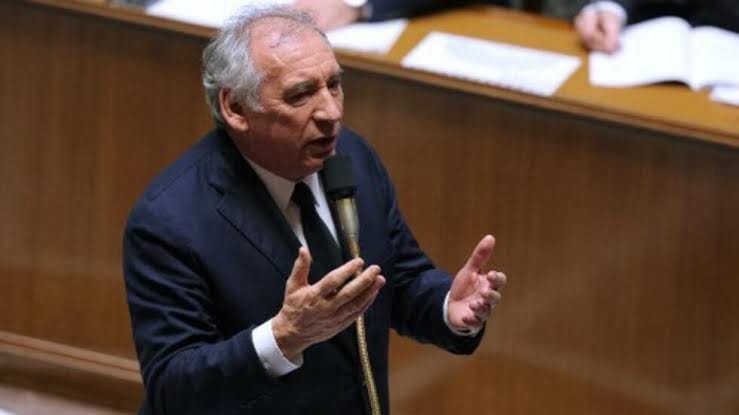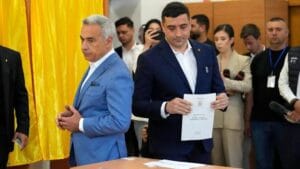French PM Bayrou survives third no-confidence vote amid budget crisis

File Source: RFI
French Prime Minister François Bayrou narrowly survived his third no-confidence vote in less than a month on Wednesday, after using a controversial constitutional tool to bypass parliament and push through the long-awaited 2025 budget.
The decision to invoke Article 49.3, which allows the government to pass legislation without a parliamentary vote, triggered a no-confidence motion from the left-wing coalition just 48 hours later.
Despite facing fierce opposition from hard-left groups such as France Unbowed, the Greens, and the Communists, Bayrou’s government remained intact. The successful survival of the vote automatically approved the contentious budget plan, which aims to cut €30 billion in spending and raise taxes by €20 billion to reduce France’s deficit to 5.4% of GDP this year.
A total of 288 votes were required to bring down Bayrou’s government, but only 128 votes were counted in favor of the motion on Wednesday night. The Socialists, also part of the left-wing coalition, and the far-right decided not to support the motion, despite their opposition to the budget. A second no-confidence vote, this time targeting the Social Security budget bill, also failed to gain sufficient support.
The situation has led to significant tensions within the left-wing coalition, with France Unbowed accusing the Socialists of betraying the left. “I think it’s irresponsible. I think it’s uncharacteristic of a left-wing coalition. I will remind you that it’s the Socialist MPs who are isolating themselves from the rest of us with their choice,” said Sarah Legrain, a France Unbowed MP.
However, Socialists’ leader Olivier Faure defended his party’s stance, stating, “We have our own autonomy and we don’t depend on anyone… it’s as simple as that.” Despite their refusal to vote against Bayrou’s government, the Socialists plan to table a spontaneous confidence motion after the budget vote. Faure clarified, “Even if I consider this budget to be a bad one, I hope that the public sector, businesses and local authorities can continue to function… We can’t have a country which, for the next few months, is in a state of crisis.”
The political turmoil has drawn comparisons to the December ousting of Bayrou’s predecessor, Michel Barnier, after the entire left-wing coalition and the far-right united to topple his government. Although Bayrou’s minority government now has some breathing room, the months ahead are expected to be challenging. France remains in political paralysis following President Emmanuel Macron’s decision to dissolve the lower house of parliament after his party’s loss in the June 2024 European elections. The subsequent summer legislative elections resulted in a hung parliament, with no single party gaining an absolute majority. According to the constitution, Macron cannot call for early elections before the summer of 2025.











